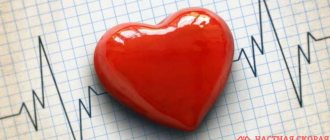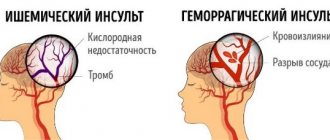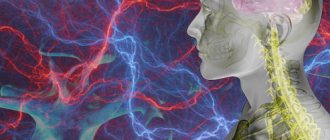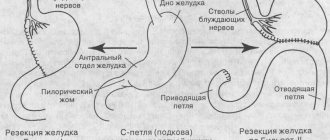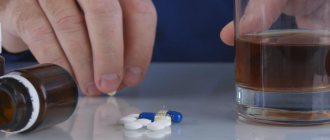Home>Articles>What does alcohol do when it enters the body through blood vessels: consequences, possible diseases
quick menu (hide)
- What does alcohol do to the heart and blood vessels?
- What happens to the heart and blood vessels with constant drinking of alcohol?
- How to quickly eliminate the effect of alcohol on blood vessels and organs
- What does alcohol do to the blood vessels and body of pregnant women and the fetus?
- How to improve the functioning of the heart and blood vessels after drinking alcohol
Today, most entertainment events do not take place without the consumption of alcoholic beverages. That's how it is with us. Only children and pregnant women leave the table sober. In the midst of general fun, almost no one thinks about how alcohol affects the heart, liver, kidneys, brain, and blood vessels. Awareness of the harm comes in the morning, when a hangover sets in. The discomfort is as follows:
- severe headaches;
- frequent vomiting;
- general weakness, lethargy;
- tremor of the limbs;
- constant thirst;
- difficulty breathing.
The state of withdrawal occurs 5 hours after drinking alcohol. During this period, it is worth taking care of removing toxic substances from the body. Detoxification can be carried out using sorbents . It is worth drinking activated carbon at the rate of 1 tablet per 10 kg of body weight of a person experiencing a hangover.
What does alcohol do to the heart and blood vessels?
Even small doses of alcohol cause damage to human health. When ethanol enters the blood pressure increases and the heart rate increases. The heart muscle is put under more strain than before, causing it to wear out. The person experiences shortness of breath, difficulty breathing, discomfort and pain in the chest area. There is a risk of death from stroke or heart attack.
note
With alcohol poisoning, oxygen starvation of cells is observed. Ethanol is present in the blood for 6-7 hours. Because of this, interruptions in the functioning of the cardiovascular system occur. The negative effect of alcohol on blood vessels is expressed in their stretching. Small capillaries may even burst. This can be found in red nose syndrome, when a person excessively abuses strong alcoholic drinks.
Alcohol thickens the blood and deteriorates its quality. This is especially true for people suffering from varicose veins. Severe swelling, pain and heaviness in the legs may occur. In advanced conditions, trophic ulcers appear. Thick blood can also cause blood clots. The risk of death increases if they enter large veins and arteries.
It is worth noting that the cause of venous insufficiency is precisely thick blood. People with varicose veins are recommended to take blood thinning medications, as well as foods that promote this phenomenon (garlic, onions, pineapples, citrus fruits, grapes, cherries, apples).
Some people are confused about whether alcohol narrows or dilates blood vessels. Everything happens due to the erroneous belief that with a large release of adrenaline, characteristic of drinking alcohol, the blood becomes less viscous. Yes, a rapid heartbeat contributes to the production of this hormone, but ethyl alcohol itself has a negative effect on the veins and capillaries. It is the increased pressure that accelerates blood flow through the vessels, which leads to increased pressure. But the next day the blood vessels begin to narrow, causing a severe headache.
It is contraindicated for persons with cardiovascular diseases to drink beer. Do not think that low-alcohol drinks do not cause such a negative effect as strong ones. You just have to drink more of them to lift your mood. Afterwards the person has little control over his own actions. Starts to drink excessively. In addition, beer and low-alcohol drinks carbonate, which increases the negative impact on the human body.
How does alcoholic cardiomyopathy manifest?
The very first sign of a developing disease is the formation of insufficiency of the heart muscle.
It is expressed:
- decreased muscle contractility;
- a decrease in the minute volume of blood (its amount passing through the cardiac chambers);
- tachycardia syndrome, constant or periodic increase in the rhythm of contractions;
- shortness of breath, at the beginning of the process during physical exertion, and then at rest;
- pasty (swelling) of the legs, especially after a long walk, standing, towards the end of the day;
- expansion of the borders of the heart during listening (auscultation) and tapping with fingers (percussion), as well as during ultrasound and x-ray diagnostics, muting the main tones.
If the main mechanism of AK is thiamine deficiency, then the clinical picture in patients is somewhat modified.
In first place come:
- increase in minute blood volume;
- severe tachycardia (accelerated heart rate);
- the presence of specific systolic murmur during phonendoscopic listening;
- severe shortness of breath, even at rest;
- swelling of the extremities (not only legs, but also arms).
As first aid, such patients should be given thiamine, which significantly alleviates the condition.
What happens to the heart and blood vessels with constant drinking of alcohol?
With regular consumption of alcohol-containing drinks, the heart accumulates a lot of fat, the tissues become more flabby, premature aging of the organ is observed, and a deterioration in its normal functioning is observed. There are high risks of developing hypertension . Characteristic symptoms:
- persistent and prolonged increase in blood pressure (140/90 or more);
- numbness of fingers and toes;
- excessive sweating;
- decreased performance, fatigue;
- dysregulation of vascular tone;
- swelling of the face, arms and legs;
- frequent migraines, dizziness.
The person will become more irritable and often feel sleepy during the day. At night, on the contrary, attacks of insomnia may occur. With high blood pressure, there is a high risk of developing atherosclerosis. This is a chronic disease caused by a violation of lipid-protein metabolism, excessive formation of cholesterol plaques in the lumen of blood vessels. This can cause them to become completely blocked.
Atherosclerosis often becomes a prerequisite for the development of coronary artery disease. The pathology is characterized by impaired blood supply to the myocardium (the muscular middle layer of the heart, which makes up its main part). The patient needs a large amount of oxygen, which can only be provided by a healthy lifestyle, proper nutrition and frequent exposure to fresh air. Exacerbation of the disease leads to a heart attack, its chronic manifestations are characterized by a feeling of discomfort in the chest.
About the benefits of beer
Another alcoholic drink that is credited with health benefits is beer. However, we are talking about so-called live unpasteurized beer, which is a rarity today. This drink contains yeast products, including B vitamins necessary for maintaining health, as well as zinc, which is involved in the synthesis of insulin and is beneficial for the skin and reproductive system. In addition, hop components, which are natural analogues of benzodiazepine tranquilizers, have a calming effect, which is enhanced in combination with phytoestrogens - plant analogues of female sex hormones.
The healthy dose of beer is 600 ml per day. However, it should be remembered that daily consumption of an intoxicating drink for several years leads to the formation of a bad habit, including due to the content of tranquilizer analogues. This is especially true for people with fair skin and hair. At the same time, beer addiction is more difficult to treat than addiction caused by stronger alcoholic beverages.
How to quickly eliminate the effect of alcohol on blood vessels and organs
It is important to take plenty of water. It is recommended to drink strong green tea. With excessive alcohol consumption, a violation of lipid-water metabolism is observed. In addition, frequent vomiting contributes to dehydration In case of severe intoxication, specialist help may be required. You should call a doctor immediately if:
- profuse vomiting;
- the presence of red discharge in the vomit;
- epilepsy attack;
- strong internal tremor;
- frequent fainting;
- delusional ideas;
- visual and auditory hallucinations;
- suicidal thoughts;
- aggressive behavior.
You can quickly eliminate the effect of alcohol on vital organs and systems and blood vessels using infusion therapy. The medicine enters directly into the blood, the effect occurs much faster than when taken orally The exact dosage of drugs and the composition of the medicinal solution for infusion should be determined by a narcologist. Typically it contains:
- painkiller,
- sedative,
- antiemetic,
- antidepressants,
- antiallergic,
- glucose,
- vitamins,
- microelements.
The intake of magnesium and potassium ions is important. These microelements improve the functioning of the circulatory system and minimize the risks of heart attack and stroke. Under no circumstances should you use a proven hangover remedy like again . The effect will be short-lived. Alcohol dilates blood vessels in the brain, so headaches may go away. But there is also another side to the coin. After some time, the person will experience a headache 2 times stronger than before.
Does alcohol improve digestion?
It is believed that appetite will be better and digestion will be faster if you drink a little strong alcohol shortly before eating. In practice, such habits can provoke several problems with the gastrointestinal tract:
- ulcer, gastritis: when alcohol gets into the stomach, it irritates the mucous membrane and burns it. If such damage occurs regularly, chronic diseases quickly develop. It is the feeling of “irritation” of the mucous membrane after drinking alcoholic beverages on an empty stomach that is perceived as a feeling of hunger. In reality the appetite does not change;
- overeating: it is provoked by a false feeling of hunger associated with irritation of the gastric mucosa. A person eats more than he actually needs. This can cause heartburn, indigestion, and excess weight;
- damage to the pancreas. It most often occurs with a single large dose of alcohol, but can also be chronic (develops if a person drinks regularly, albeit in small quantities).
With frequent consumption of alcoholic beverages, digestion worsens, appetite decreases, and chronic diseases of the digestive system may develop. Metabolism is disrupted, and the absorption of nutrients decreases.
What does alcohol do to the blood vessels and body of pregnant women and the fetus?
Alcohol in any quantity or form is contraindicated for pregnant women. It negatively affects the fetal organs that are not yet fully formed and strengthened, and its mental development. The embryo may experience oxygen starvation of the brain. Women who drink have children born with:
- irregular skull shape;
- spherical eyes;
- underdevelopment of the jaws;
- sexual dysfunction.
And this is not to mention what alcohol does to the heart and blood vessels of the woman herself. Pregnancy is a stress on the body. Pregnant women may experience tachycardia, develop varicose veins, and decrease immunity. It is important that a woman becomes aware of the harmfulness of alcohol and the colossal harm to her offspring.
What to do if a person is unable to stop drinking alcohol?
Not everyone is able to stop drinking alcohol on their own, even if they have heart problems.
Alcohol is highly addictive, and not everyone can cope with it. If you cannot stop drinking alcohol on your own, you need the help of a professional narcologist. You can get this help in our clinic. We employ experienced narcologists who professionally lead patients out of binge drinking and relieve them of alcohol addiction. In addition to drug treatment, we also provide psychological assistance to clients, helping them understand the cause of addiction and return to a healthy, sober life. Call 8 (495) 150-85-96
How to improve the functioning of the heart and blood vessels after drinking alcohol
The morning after the feast, the first thing you should do is to eliminate intoxication from the body as quickly as possible. It is important to drink more fluids. Under no circumstances should you drink alcohol again. It's better to give your body a rest. It is worth giving up “heavy” foods. The diet should consist of:
- fresh vegetables and fruits;
- fermented milk products;
- boiled eggs;
- cereals;
- freshly squeezed juices;
- compotes
If alcohol has been consumed, staying in the fresh air will have a beneficial effect on the heart and blood vessels. When walking, cells are more saturated with oxygen, so it is important to move more. Strong physical activity with a hangover is contraindicated as well as a sauna. High temperatures also put stress on the heart.
After drinking alcohol, it is important to take a break, which is necessary to restore normal functioning of the body. Alcohol affects not only blood vessels and the heart. The liver is primarily affected. This is the main filter of our body, preventing toxic substances from entering the bloodstream. With excessive alcohol intake, the liver does not properly cope with its direct responsibilities. Therefore, it is important to know the norms for alcohol consumption.
You can drink no more than 200 ml of wine or 100 grams of vodka per week. It is clear that the onset of withdrawal syndrome occurs individually. However, with age, a person gets drunk faster and faster. This is due to the aging of organs, blood vessels, and a slowdown in metabolic processes. Therefore, you should not be negligent about your own health. It is important to take care of it from a young age.
Where did humans get the ability to metabolize alcohol?
The body of all mammals contains the enzyme alcohol dehydrogenase, which is responsible for the breakdown of alcohol. However, despite the fact that it processes alcohols well, this enzyme has difficulty coping with ethanol. If a person had inherited the same characteristics of the body from animals, then he would not be drawn to alcohol: even small doses contained in ripe fruits would lead to severe intoxication, not to mention stronger drinks.
Scientists were able to discover that in the process of evolution, our ancestors acquired a special subtype of this enzyme - ADH4 (alcohol dehydrogenase of the fourth class). A small genome mutation led to a change in the 294th amino acid of the enzyme and allowed the body of our ancestors to digest ripe fruits and not climb trees for unripe fruits.
So, 10 million years ago, the human body’s ability to metabolize ethyl alcohol helped people begin to explore open spaces instead of climbing trees, and then become homo erectus.
